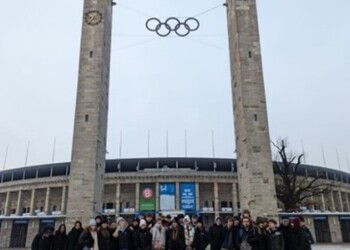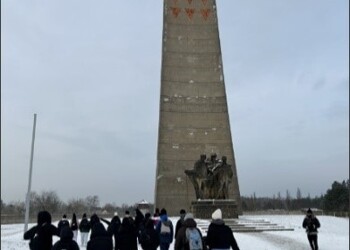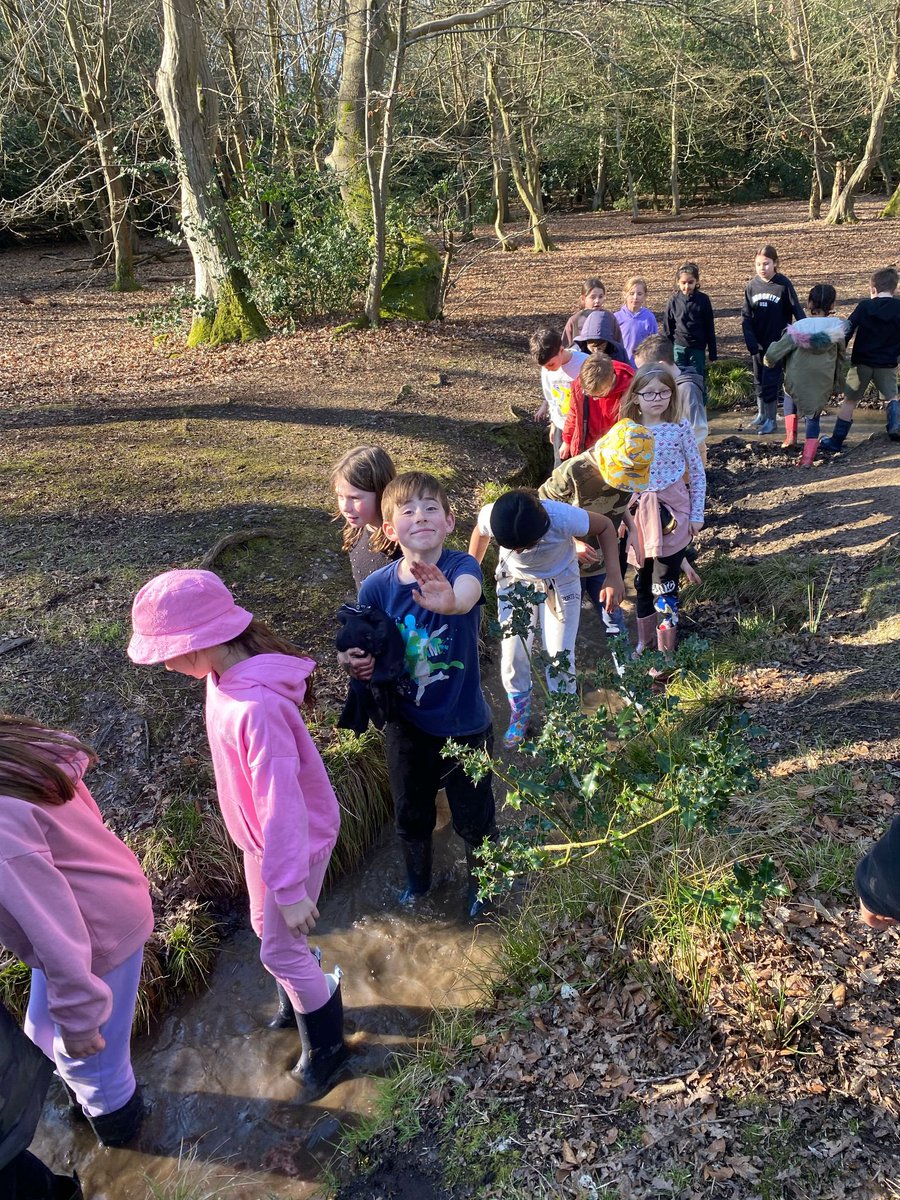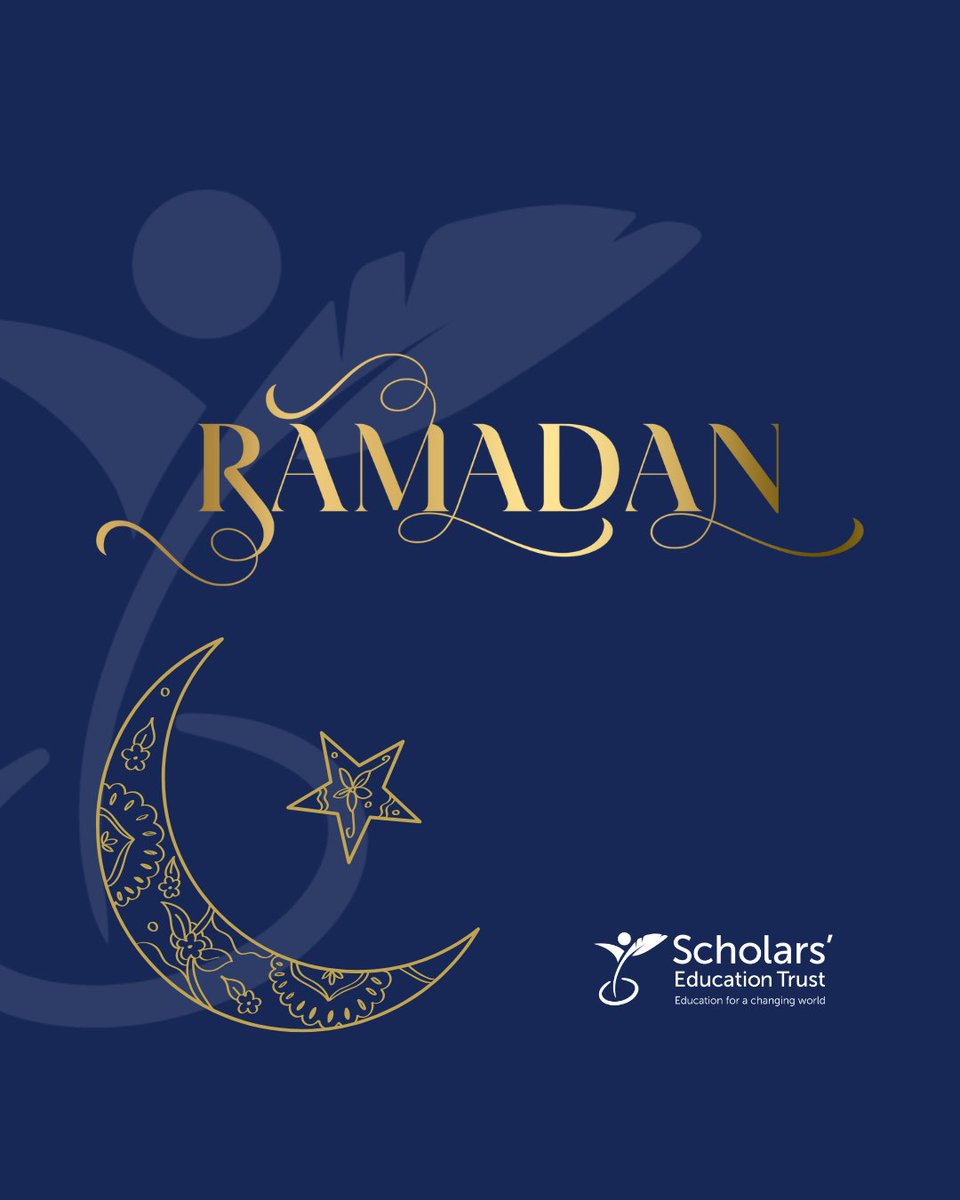History
History at Samuel Ryder Academy creates individuals that are curious and evidence driven thinkers. Our curriculum develops knowledge of the modern world through study of the past by exploring the impact of political, social, technological and religious change with a specific focus on the history of Britain in its global context. Students have the experience of being exploratory learners, encouraged to develop their own opinions through discovery and discussion of the past, and by studying and considering the arguments of others. Our students become confident, articulate and empathetic young people who will be valued citizens of the future.


KS1
Children develop an awareness of the past, using common words and phrases relating to the passing of time. They find out where the people and events they study fit within a chronological framework and identify similarities and differences between ways of life in different periods. By using a wide vocabulary of everyday historical terms, children develop a sophisticated vocabulary. Children ask and answer questions, choosing and using parts of stories and other sources to show that they know and understand key features of events. They understand some of the ways in which we find out about the past and identify different ways in which it is represented. Children begin in year 1 by establishing an understanding of time and to develop a wider chronological framework.
Children will make excellent use of technology, such as the virtual reality headsets, to give them a new insight into the past. Additionally, children enhance their oracy skills through structured discussion to develop their confidence and help them with their future learning.
|
|
Autumn |
Spring |
Summer |
|
Year 1 |
Changes with living memory |
|
Carnival of the animals |
|
Year 2 |
Great fire of London |
Famous for more than 5 minutes |
|
KS2
Students receive discrete history lessons which focus on key topics and the development of second order concepts: knowledge and organisation, cause and consequence, change and continuity, evidence, interpretations and chronological understanding. Throughout Key Stage 2, children continue to develop a chronologically secure knowledge and understanding of local, British and world history, establishing clear narratives within and across the periods they study. They are supported with identifying connections, contrasts and trends over time and develop the appropriate use of historical terms. Children explore the range of sources that are used to construct our knowledge of the past and recognise the different interpretations that these sources can elicit. Importantly, students also have the opportunity to approach significant spiritual, moral, social and cultural themes, such as empathising with people living through on the Homefront of World War II during the Blitz.
Children will make comprehensive use of digital technology, such as virtual reality headsets, to provide a first-hand insight into the past. Additionally, children continue to enhance their oracy skills through structured discussion and presentations, thereby developing their confidence with future learning. Themed days, such as World War II Day, give students the rare opportunity to truly experience the past in new ways. Students in Key Stage 2 will be introduced to our SCHOLAR values, such as social awareness, curiosity and higher order thinking. These concepts are implemented through well-planned lessons that engage and inspire students to think critically about the history of Great Britain and beyond.
|
|
Autumn |
Spring |
Summer |
|
Year 3 |
Stone Age to Iron Age |
Romans in Britain |
|
|
Year 4 |
Anglo Saxons and Vikings |
|
Ancient Egyptians |
|
Year 5 |
Ancient Greece |
Mexico and the Mayans |
|
|
Year 6 |
World War 2 |
|
China and the Shang Dynasty |
KS3
We encourage our Key Stage 3 students to start thinking like scholars, and lessons include plenty of opportunity for oracy, curiosity and higher order thinking. Oracy in particular, is developed and practiced with comprehensive feedback, to ensure students start gaining more confidence with their public speaking. Students make use of technology, such as virtual reality headsets, to provide a new insight into the past. Students make extensive use of their iPads when carrying out independent research and presentation activities. Students in Key Stage 3 will continue to be introduced to our SCHOLAR values, such as social awareness, curiosity and higher order thinking. Students are continuously challenged through questioning, well planned and delivered lessons and access to challenging historical texts and source material.
Students will also learn about important themes that link to spiritual, moral, social and cultural values, such as slavery in year 7 and the Holocaust in year 8. It is ensured that these topics are taught with rigor and sensitivity, encouraging students to empathise with victims. Throughout Key Stage 3, students will be introduced to the skills of: Knowledge and Understanding, Change and Continuity, Cause and consequence, Communication, Source Analysis, Essay Writing and Explaining Why.
|
|
Autumn |
Spring |
Summer |
|
Year 7 |
Medieval England & The Tudors Starting with a case study of St Albans, students study the Roman, Saxon and Norman conquests of England and their societal impact, as well as key events such as the Black Death. Following this, students learn about the ‘religious rollercoaster’ of the Tudor era. |
Slavery and civil rights Students explore the topic of Slavery and Britain's role, as well as the motivation behind the Slave Trade and the role of Abolitionists in ending slavery within the British Empire.
|
The Industrial Revolution and the British Empire
|
|
Year 8 |
World War 1 Students investigate the causes, course and impact of WW1 with a particular focus on the impact of war on Britain, including women's suffrage and our relationships with former allies and adversaries in the Inter War period.
|
Russian Revolution Students begin with a study of the causes of revolution and the contribution World War 1 had on the collapse of Tsarism. Students investigate the origins and theories behind Communism and the Bolshevik seizure of power. The unit will then focus on how the Russian Revolution affected the people in Russia and the impact of communism on the wider world.
|
The Holocaust Students study the events leading up to the Holocaust and the significance of a major event in history.
|
|
Year 9 |
Weimar and Nazi Germany Students look into the establishment of democracy in Germany, looking at the impact of WW1 and its failure to win the hearts and minds of the German people. Students investigate whether Weimar was doomed or whether Stresemann's acts could have saved Germany from dictatorship.
|
Weimar and Nazi Germany Students investigate how Hitler was able to exploit dissatisfaction with democracy and economic collapse to seize power in 1933. Students then assess how Hitler was able to create a dictatorship and establish a police state.
|
Weimar and Nazi Germany Students investigate the extent to which the Nazis were able to transform society with a particular focus on women, youth and the workers. How much opposition was there in Germany and why was Hitler not replaced even when defeat was inevitable?
|
KS4
History is a subject that enables us to understand our present through the study of the past. Successful historians are individuals that are curious and evidence driven thinkers with a sense of time and place alongside a knowledge of the key events that underpin modern British society. Throughout year 10 and year 11, we support students to develop their oracy skills by getting involved in class discussion and challenging other peoples’ opinions. Students are also encouraged to become independent learners and find information for themselves using the digital technology available to them. In addition to this, students will be introduced to spiritual, moral, social and cultural themes during their KS4 journey. Students will for example be encouraged to emphasis peoples living under oppressive regimes, or understand the roots of England’s modern day legal system.
Through the Thematic Study unit of the GCSE, students gain an understanding of the change and continuity across a long sweep of history, looking at the key features of each period based on their ideas about what was considered a crime, how criminals were caught, how guilt or innocence was determined and the nature of punishment. The Anglo-Saxon focus on the responsibility of the community to catch law-breakers and the involvement of God in deciding guilt or innocence are explored and the extent to which the reasons behind these aspects of law-enforcement changed over time will be a focal point. An analysis of change and continuity over time takes students to the present day where a study of modern policing and the reasons for different punishments are explored. Students develop an understanding of the nature and process of change and of the factors which prevent or encourage change.
Students are assessed on their knowledge and understanding, with questions focusing on similarity and difference, and change and continuity. They are asked to identify turning points and the causes or consequences of change.
Through a case study of Whitechapel c1870-c1900, students investigate the challenges faced by the police in Whitechapel around the time of the Jack the Ripper murders.
The content is assessed through a question on features of the period and also through a historical enquiry where students analyse and evaluate sources to make judgements, using their own knowledge.
This is followed by the British Depth Study unit, covering the reign of Queen Elizabeth I and looking at the socio-economic, political and international challenges she faced from her ascension to the throne to the defeat of the Spanish Armada and the early voyages of plunder and discovery that built the foundations of British Empire. The unit covers a short period of time allowing students to develop a detailed and comprehensive understanding.
Students are assessed on their knowledge and understanding. Questions target key features and causation, and second order concepts such as change, continuity, consequence, similarity, difference and significance.
The Period Study unit looks at the origins and course of the ideological conflict between the USA and the Soviet Union from 1941-91. Students study the reasons for the collapse of the Grand Alliance at the end of the Second World War, and how this increasing tension and suspicion led to conflict in Europe, the Caribbean, Asia and even space until the final collapse of the Soviet Union in 1991. Students are assessed on their knowledge and understanding. Questions target: consequence; significance of events and analytical narrative (requiring students not only to describe what happened, but also to analyse events to find connections that explain the way in which events unfolded).
Finally, students undertake a detailed investigation into the events which led the German nation from democracy to dictatorship and subsequent defeat and destruction. Students study the establishment of the Weimar Republic at the end of World War One and analyse the reasons for its collapse with the appointment of Adolf Hitler as Chancellor. They then evaluate the extent to which the Nazis transformed German society.
Students are assessed on their ability to analyse and evaluate sources and interpretations. Students should be aware that interpretations are based on evidence from their period of study and consider ways in which it could give rise to, and support of different interpretations. Students should understand a range of reasons why interpretations may differ and that differences based on conclusions drawn from evidence are legitimate and can be explained.
What examination board will I follow?
Edexcel GCSE History 1HI0 BR
GCSE History Specification: GCSE (9-1) History Specification Issue 4 (pearson.com)
|
|
Autumn |
Spring |
Summer |
|
Year 10 |
The Cold War |
The Cold War / Early Elizabeth |
Early Elizabeth |
|
Year 11 |
Crime & Punishment |
Crime & Punishment |
Exam Preparation |
Beyond GCSE
History is a widely respected A-level choice with a variety of transferable skills that prepare students effectively for further study at university or for entering a range of jobs. Transferable skills include the ability to discuss and argue your point with views, writing skills, and the ability to question sources and media that we encounter in our later life. Throughout year 12 and year 13, we encourage students to develop their oracy skills by getting involved in class discussion and challenging other peoples’ opinions.
Topics covered
- Paper 1: Germany and West Germany, 1918-1989
- Paper 2: The Rise and Fall of Fascism in Italy, 1911-1946
- Paper 3: Britain: Rebellion and Disorder under the Tudors, 1485-1603
- Coursework: The Russian Revolution and Dictatorships
A-Level History Specification: Edexcel GCSE and GCE 2014 (pearson.com)
In order to successfully access the A-Level history course, candidates must have a Grade 6 or above in GCSE history. In addition, students are expected to meet regular essay deadlines throughout the A-Level course. They must be prepared to carry out wider reading, for example biographies and academic articles. History is a demanding subject, but as a result one that is highly valued by higher education establishments and employers.
Wider Curriculum Opportunities and Careers
Within school, there are many opportunities outside of the classroom to extend your historical knowledge. These include residential trips and visits to the Tower of London and the Trenches, as well as opportunities to take part in activities such as our House Egg Heads Challenge. Students in Key Stage 4 attend a residential trip to Berlin, where they take in sites that help them understand Berlin in the 1930s and during the Cold War. We encourage all of our GCSE students to conduct wider reading and complete the super-curriculum tasks that we set. This can include listening to podcasts or watching documentaries (key examples listed below). Within school, there is the popular historical film club that takes place each week. We have a recently established History & Politics digital library, which we use to share engaging resources with students.
History is a demanding subject, but as a result one that is highly valued by higher education establishments and employers. The study of history often leads students into careers including: journalism, law, education, civil service, publishing, archaeology, archiving and heritage, business, politics, marketing and advertising.
Wider reading/listening/watching list –
General:
BBC History Magazine
History Today Magazine
BBC Bitesize
KS3:
Podcast: You’re Dead to Me
Watch: The Rise of the Nazis- BBC iPlayer
KS4 & 5
Podcast: The Rest is History
Podcast: Dan Snow’s History Hit






















